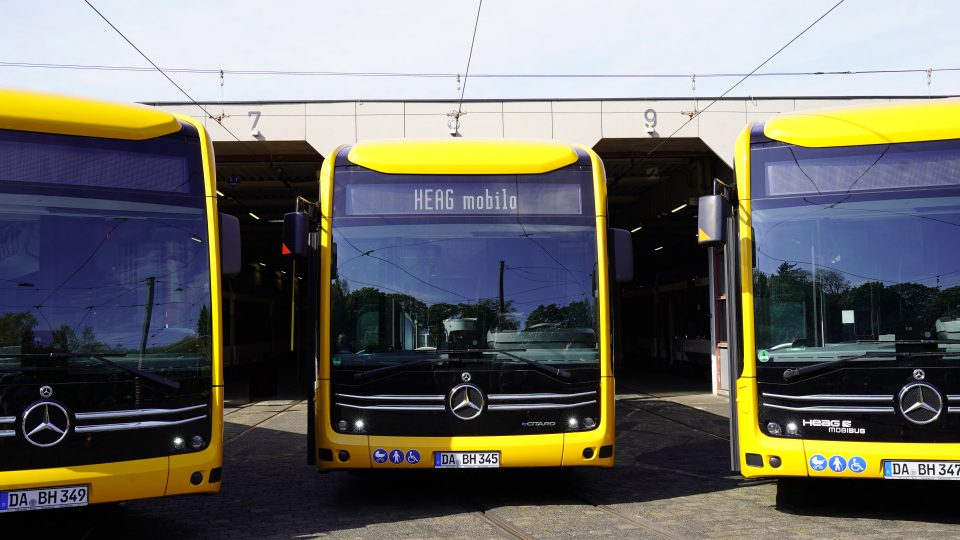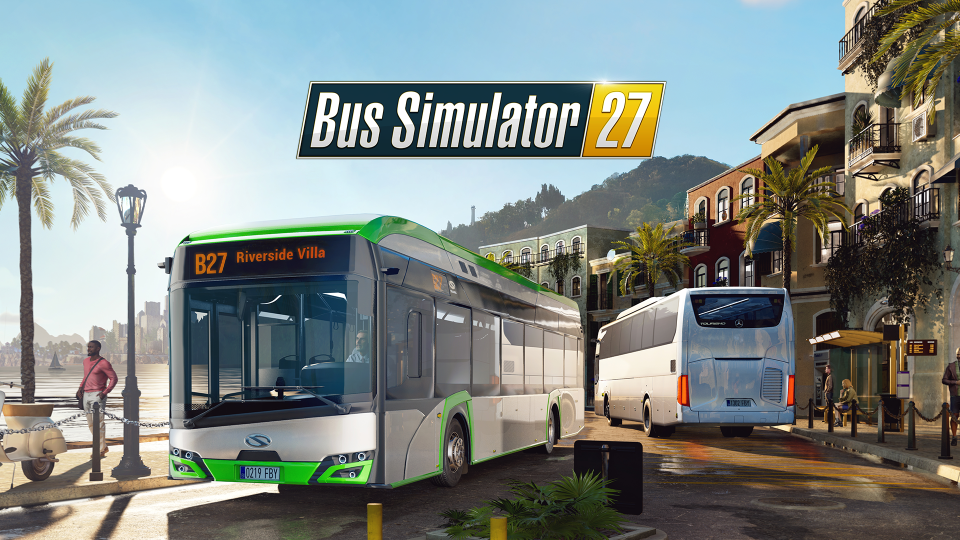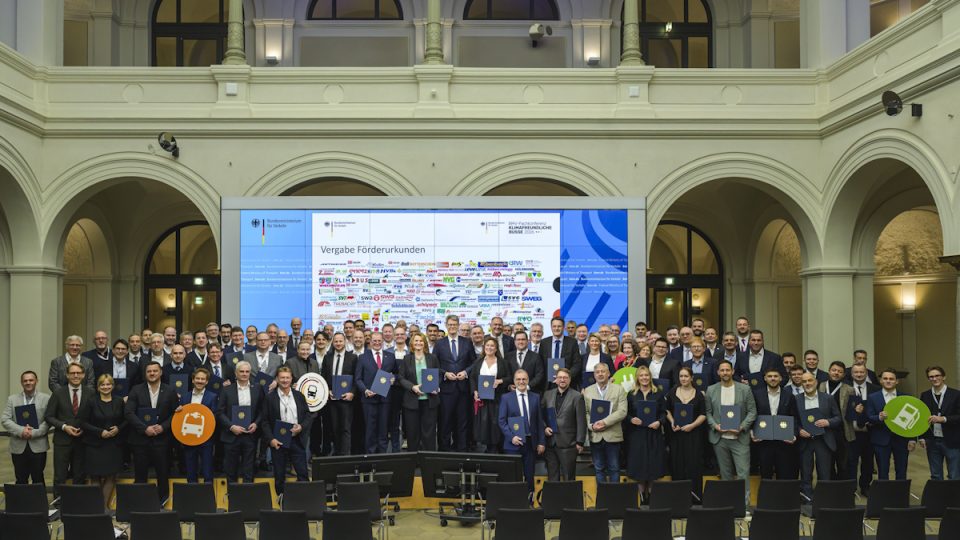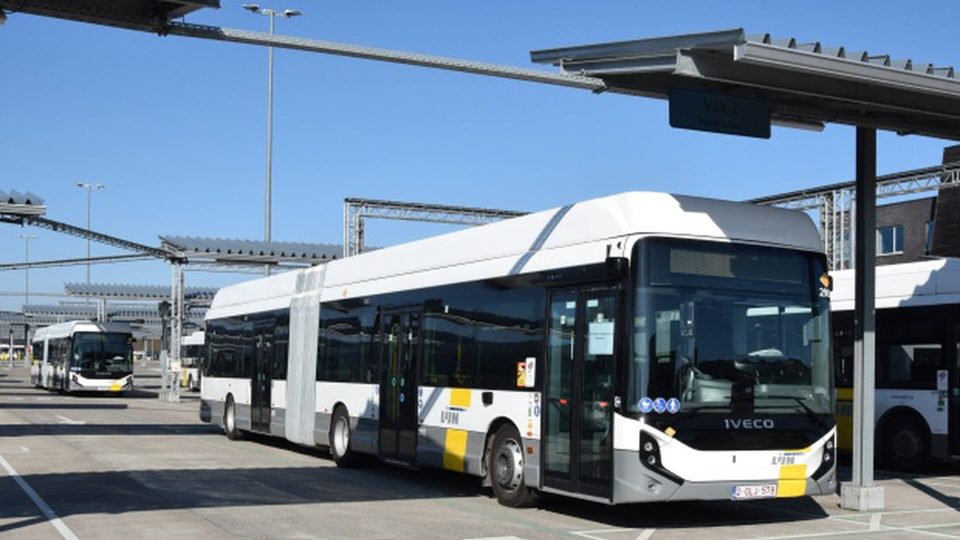$182 Million in grants for e-buses (+ infrastructures) in the US
The U.S. Department of Transportation’s (USDOT) Federal Transit Administration (FTA) announced approximately $182 million in funding for low and no emissions buses and the facilities that support them. This program helps contribute to the Biden-Harris Administration’s goal of reducing greenhouse gas emissions by fifty percent by the end of the decade. 49 projects in 46 […]
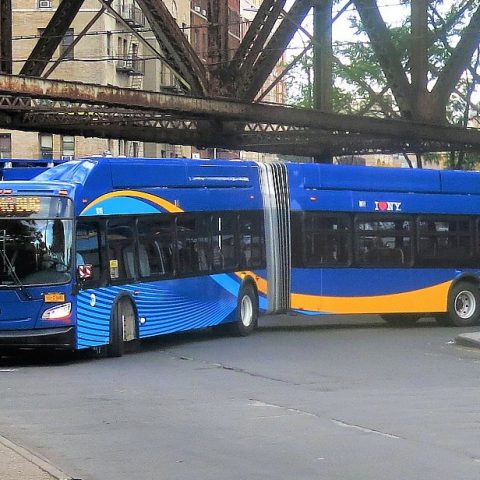
The U.S. Department of Transportation’s (USDOT) Federal Transit Administration (FTA) announced approximately $182 million in funding for low and no emissions buses and the facilities that support them. This program helps contribute to the Biden-Harris Administration’s goal of reducing greenhouse gas emissions by fifty percent by the end of the decade. 49 projects in 46 states & territories selected to receive funding to improve service, air quality.
Grants for less polluting buses in the US
The project selections were approved as part of the Low- or No-Emission (Low-No) Grant program, which funds the deployment of zero-emission and low-emission transit buses and supporting equipment and facilities
“Public transit connects people to jobs, services, and loved ones – and when our transit buses produce low or zero emissions, it’s an even bigger win for communities,” said U.S. Transportation Secretary Pete Buttigieg. “There is overwhelming demand to support low and no emission transit all around the country – in both rural and urban areas – and meeting this need is a matter of climate responsibility and public health.”
FTA’s Low-No Program supports transit agencies in purchasing or leasing low- or no-emission buses and other transit vehicles that use technologies such as battery electric and fuel-cell power to provide cleaner, more efficient transit service in communities across the country. This year’s funding opportunity prioritized applications with an environmental justice component as well as those that support workforce development to help America’s transit workers succeed even as their jobs change along with technology. Only one of the 49 projects supports the procurement of hybrid buses.
“The Federal Transit Administration is proud to support our transit partners to upgrade their fleets with newer, cleaner vehicles and facilities,” said FTA Administrator Nuria Fernandez. “These projects are all designed to take dirty buses off the road and replace them with clean, electric models, improving the air we breathe and protecting our planet for future generations.”
A list of subsidized projects
A few examples of 2021 Low-No grant projects include:
- The Chicago Transit Authority (CTA) will receive nearly $7 million to purchase battery electric buses and charging equipment, upgrade its Southside bus depot and provide workforce training. The electric buses will replace CTA’s oldest diesel buses and reduce greenhouse gases in communities that have experienced air pollution and other environmental health hazards, improving public health and quality of life.
- The Port Authority of Allegheny County in Pittsburgh, PA, will receive $5.1 million to purchase electric chargers and make improvements at its East Liberty Garage to support future electric buses as part of its planned bus rapid transit system. By retrofitting the garage to service electric buses, the agency will also lower pollution in the surrounding community.
- The Regional Transportation Commission (RTC) of Washoe County in Washoe County, NV, will receive nearly $6.5 million to purchase hydrogen fuel cell-electric buses and construct a hydrogen fueling facility to improve service reliability and air quality for residents in the Reno-Sparks metropolitan area. The project also supports RTC’s efforts to transition its aging diesel bus fleet to zero emission vehicles to reduce energy consumption and greenhouse gas emissions in an area where ozone levels currently exceed air quality targets.
- The Salt River Pima-Maricopa Indian Community’s Salt River Transit, which provides transit service to Native American communities in and around Scottsdale, Mesa and Tempe, AZ, will receive $611,840 to replace diesel-powered transit vehicles that have reached the end of their useful life with battery electric vehicles as well as install charging stations. The community seeks to reduce carbon monoxide pollution to improve air quality and quality of life in their EPA-designated non-attainment area.



